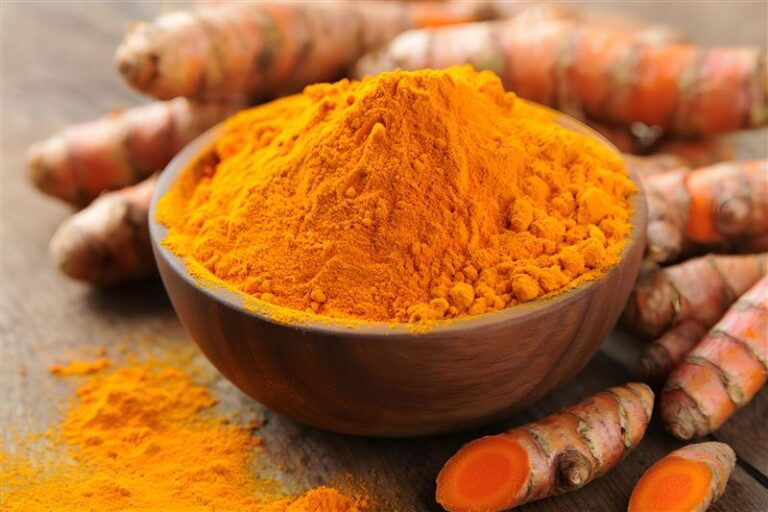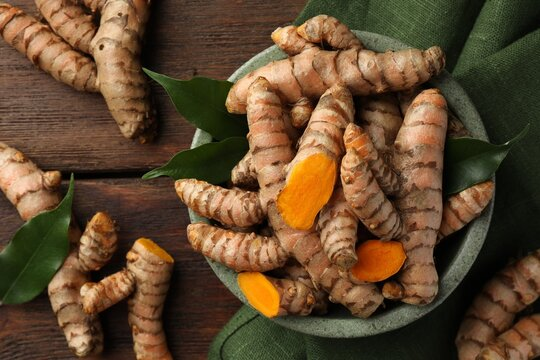
Although turmeric is widely recognized for its antioxidant and anti-inflammatory benefits, its results may be limited due to low absorption of its active compound, curcumin. This phenomenon of low bioavailability causes the body to take advantage of only a fraction of the potential of this ancient root, which has prompted modern science to develop formulations that improve its absorption and effectiveness.
A review published in the journal Phytotherapy Research analyzed more than 100 clinical trials with more than 7,000 participants, and found consistent evidence that turmeric could have benefits for various aspects of health. Results on four measurements—fasting blood sugar, good cholesterol (HDL), body weight, and an inflammation marker called CRP—were considered very reliable because of the quality of the studies.
These results support what nutrition already observes in practice: turmeric has beneficial effects on different systems of the body.

Originally from Asia, turmeric has been used for thousands of years in Ayurvedic medicine and contains curcumin in its rhizome (a stem like a root), which is a “pleiotropic” compound, that is, it has multiple beneficial effects on different systems of the body.
“Science has shown that curcumin, the active compound in turmeric, can interact with many molecules in the body, allowing it to influence several biological processes at the same time. For example, it has antioxidant action, helping to protect cells from premature aging and damage caused by oxidative stress. It also has anti-inflammatory properties, acting on mechanisms related to diseases chronicles. In addition, it has been observed that it has antimicrobial activity and a potential anticancer and neuroprotective effect that is still being investigated”, explains nutritionist Carolina Chevallier, Herbalife Senior Manager of Scientific Affairs for Central and South America.
How to choose the right turmeric?
Now, despite all its potential, curcumin has low bioavailability, that is, the body can use very little of the compound in its natural form since its absorption is low, and what reaches the blood is metabolized and eliminated very quickly, leaving it little time to act. That is where supplements become relevant, since many formulations are developed precisely to improve these limitations so that the body can make the most of it.
“At this point, it is worth understanding that the powdered rhizome is more suitable for culinary use (as a condiment), while standardized extracts (that is, they concentrate and measure the amount of curcuminoids they provide) or advanced formulations with high bioavailability (with nanotechnology, combined with other bioactives, or other technologies) are more suitable options for nutritional purposes (as an antioxidant for health promotion and protection) or therapeutic purposes (such as those being investigated for cancer, neurodegenerative diseases, osteoarthritis, etc.)”, says Chevallier.
There is no exact recommended dosage for turmeric, as the amount needed may vary depending on the type of formulation. Some supplements list doses in milligrams (mg), while others may require larger amounts, such as 1.5 grams or more. This depends on the type of ingredient used in the product. Therefore, it is essential to check if the supplement contains a patented ingredient and if it has clinical studies to support the suggested dosage.
Thus, the Herbalife specialist suggests reviewing other important points when choosing a supplement:
• Concentration of curcuminoids: check the label to see if the product clearly indicates the amount of curcumin or curcuminoids it provides, and if it uses a patented ingredient.
• Bioavailability: give preference to products that use technologies to improve absorption, such as the association with adjuvants, for example, piperine (a compound in black pepper) or advanced formulations with high bioavailability.
• Safety and quality: check if the supplement has the corresponding registration with the main regulatory body in your country and is made by a recognized and registered manufacturer, which will guarantee that tests have been carried out to control contaminants (heavy metals, pesticides and microorganisms) and other quality and safety parameters. “It is important that every supplement has the recommendation of a nutritionist or doctor, and that the specialist accompanies his or her patient to ensure proper and safe use”, concludes the nutritionist.
Beyond being a condiment, turmeric represents a natural source of well-being that combines tradition, scientific support, and nutritional value. Choosing quality formulations with clinical support allows you to make the most of its antioxidant and anti-inflammatory benefits, promoting more balanced and lasting health.
If you are interested you can find more information here:






